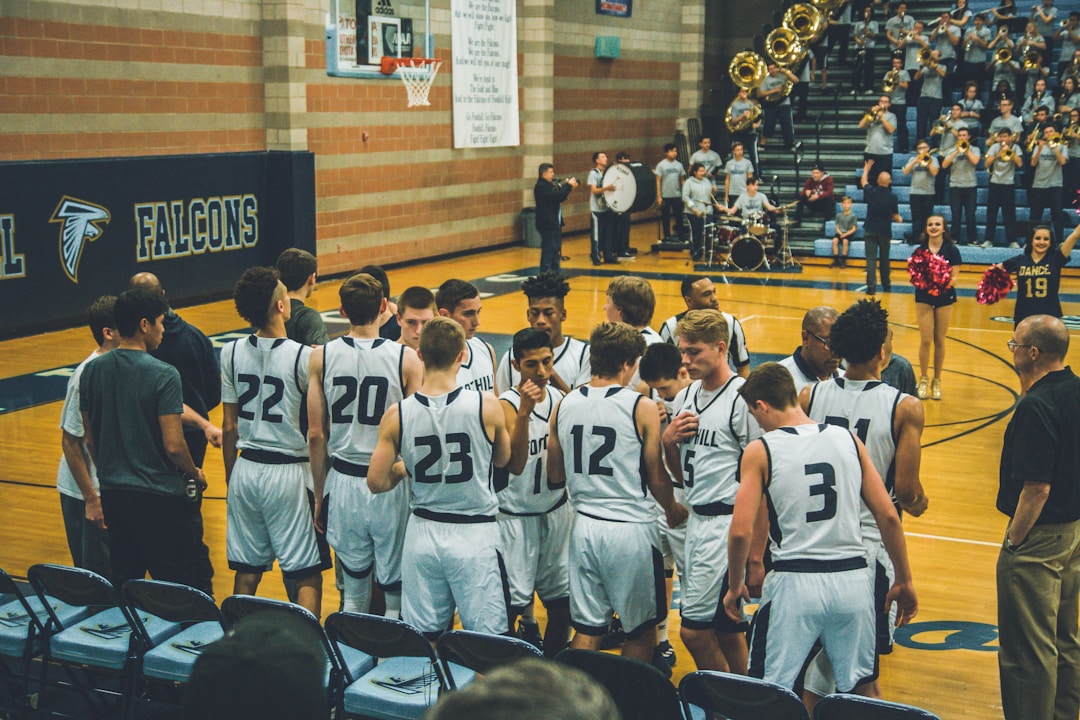What does it mean being Out at Work? As June is Pride Month I launch a series of posts on the role of LGBTQ+ Rights in Workplace, starting with my experience.
Out at Work. As June is Pride Month, I have decided to talk about my personal experience about being open and out, first with myself than with the world, especially in my work environment. The idea of writing this post series came after I took part in a webinar fro mygwork, where I spoke both about my personal experience and the situation for LGBT+ people in the workplace by VF Corporation. After the call, and the few questions received, I realised that 20 years have passed since my personal coming out, and a lot has happened. But the quest for self-acceptance and Inclusion is never over. Although these 20 years have seen a lot of improvements, there is still a lot to be done to continue to increase awareness and educate people to diversity. Which is why I’ve decided to tell my story, and together with a few other posts, check where we stand in terms of rights and organisational awareness.
My Personal Journey
Today I feel that in many countries a lot has improved, but the fear of personal judgement and discrimination that many still feel around the topic of homosexuality is still evident. After a decade of continuous improvements in rights, we have seen a resurgence of populist movements also in western countries. There are still many countries where I have chosen not to travel because I would be a criminal under their current legislation.
At the same time, I’ve seen some positive progress in many aspects of life. And the topic of LGBT+ rights in the workplace can be raised in many more environments than ever before. I lived in a country (Luxembourg) which today has the first openly gay Prime Minister. Besides heads of governments and other politicians, There are CEOs and many senior executives in many organisations that today are publicly gay. Luckily, the possibility of finding role models, for those that find themselves still “in the closet” is much broader than just two decades ago. This was a topic that drove my attention since the very beginning of my experience. Like many, I have had a long personal story of acceptance. It ultimately ended in 1999 (already at 23) with my first relationship. But it was only towards the end of the year 2000 that I have had the courage to (slowly) start talking with my parents, relatives and friends.
In that year, freshly out of University, I had started working in Milan. Living in a large city allowed me to gain a lot more exposure in the LGBT world. Thanks also to my flatmates, I got acquainted with some of the associations that were working on LGBT rights. At work, I started looking into Diversity Management, a pretty new topic for Europe and especially Italy. I had tried to promote it as an approach by adding it to our portfolio of consulting offering. Studying it came as the result of the fact that I consistently felt terrible about this continuous separation of life between private and professional one. And I was looking for a way to try to merge the two. But it was not until 2002 when I could find really a better way to engage. In a forum, I found a group of gay professionals that was trying to establish a network or association, so I got in touch and decided to support.
Supporting LGBT+ Professionals

In 2002 PrIMO Network Italiano was born, an association for which I was an active member for 4 years, and that was the first Italian association of gay professionals. I took responsibility for the international relations of that organisation, and through it I got in touch with other association around Europe, helping to form EGMA, the European Gay and Lesbian Managers’ Association again. We organised several events, particularly in Milan, among which a large international gathering. I appeared on a few articles in different magazines (the picture above comes from a 2005 5 pages long piece on Lo Specchio). Which also meant I had evidently chosen not to separate my life anymore in two.
Yet, I still recall a moment in which my boss of that time, asked me, are you sure? There was no problem from his side, but just an innate feeling of stereotypes which was not easy to dismantle.
As I moved away from Milan, I slowly lost touch with the association work. But I continued to work on the topic both at work (Diesel got its Diversity Policy officially in 2005) and in my private interests (I held a few seminars on the subject, and continued to write in the various iterations of my blogging experience).
The world changed fast. More and more countries started accepting some forms of civil union or wedding. The focus of LGBT rights expanded from acceptance of Gay and Lesbians to visibility, then including bisexual, transgender and non-binary people. Yet the challenge always stays the same: developing a working environment where each individual can feel accepted, included, and wants to belong to.
From my personal experience, it is less and less common to find openly discriminatory environments in most companies (but there are exceptions). Among most managers, there is a sense that homophobia is not acceptable at work. But we need to continue with an intense educational and awareness fight because way too often there are still many behaviours that are divisive instead of inclusive. From the occasional joke to those assumptions (how’s your girlfriend doing): shrugging them off as just signs of banter doesn’t help us.
Working as an HR Professional
Working as an HR professional, I need to see this topic not just fro my personal eyes, but also from the eyes of other people that sometimes have felt discriminated, even violate by behaviours of others. And have learnt that things are not easy, nothing is merely black and white. There is still a lot to do in terms of awareness and education, especially leadership and middle management. There is a lot that corporations can do. Still, it is also true that balancing the act with the different countries each large firm operates in is sometimes complicated. However, even here, it is often a question of acting. When I joined VF as HR Director Retail EMEA, I ensured we would harmonise policies across the countries in my remit (12 countries in Europe). For example, through this, we would recognise the same leave of absence entitlement for marriages and civil unions independently from the gender of the employee and even if held in another country (back then not all countries had yet a policy in place).
Today, I’m happy that a group of employees is starting an ERG within the EMEA region. It’s a sign of maturity that is truly important (I want to avoid; however, the feeling that this is just another HR thing). Yet, when people ask me where I see ERG in the future, my standard answer is that I hope they are not needed anymore. However, similarly to women rights, we know that it is always a very long journey. But will talk about this more in a forthcoming article.
Acting as a Manager
Being Open at Work made me a better manager. I don’t usually brag about myself, but over time I can often confront myself with peers who have never had this experience, and I do notice that there is a difference. Some could consider this a learning of resilience, or a form of authenticity as I speak about it. For me, it is just big learning on the real value of diversity. Having a variegated team, with individualities that truly contribute with their multiple belongings, is an added value per se, and something I’ve always been striving for. And something I miss currently, as I’m now acting in a more advisory role within my organisation
Diversity is a complex topic to tackle both as a Manager and as an HR practitioner. But the business case is so evident, that is a vital topic to fight for. The LGBT+ is just one of the dimension, as unfortunately, the events of the world keep telling us. But it is one that stretches our thinking and habits. You can’t hide your gender or racial origin. There’s no “coming out” of being a woman. Yet, it is often the starting point to understand how critical multiple belongings are. And how simply putting a person in “one box” is a shortcut for failure. Also on this, I’ve been personally lucky, as a gay white man, I “only” had one diversity element to fight for. But working as a manager taught me how important it is to grasp the individuality of each of us, and how much we belong to different communities at the same time, and how each of these influence our lives.
Conclusion: being out at work
Being Out at Work is the result of an intimately personal journey, something that each of us can only experiment on their own. I can only be grateful for the mentors, managers, colleagues and friends that have supported me around the way. I have been lucky, I worked for organisations that were open to change. I know not everybody shares this luck, which is also why I’ve been pushed to write this post and will continue with some more articles.
I can’t take any lead in suggesting how an individual should move along their path of self-acceptance. There is so much individual difference, and respect for each personal journey, that I’m simply not equipped to help out here. But what I can do, is help to ensure that when a person finally makes their choice, they will find an open and supportive environment at work, in which they are not judged, but valued as human beings. And am happy to support also as a mentor for those of you that might be in need.
This is a big part of what I also think of being Human Resource professional means.
And you? What has your personal journey been?

Comments and Feedbacks
More posts like this










